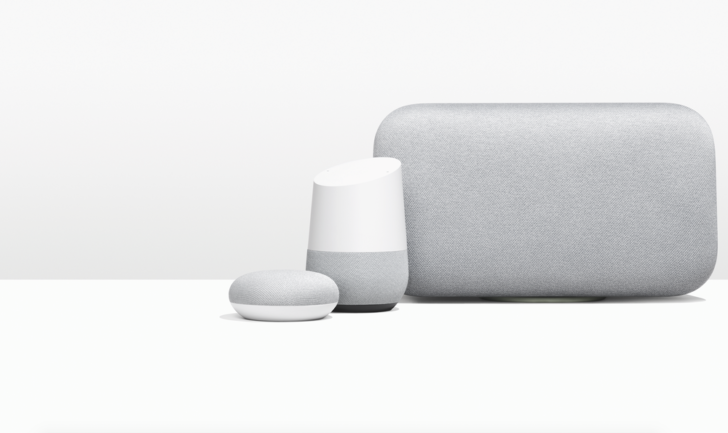latest

Speakers are no longer just ways to listen to music; they're often home to helpful AI personalities like Alexa and Google Assistant. Smart speakers are big business these days, and market analysis firm Canalys has a new report that shows just how big. According to Canalys, Google, Xiaomi, and Alibaba all saw massive worth in smart speakers in 2018 vs. 2017. Amazon, however, saw a more modest rise.

Smart speaker sales up 187% in Q2 2018: Google Home leads the pack, Chinese market sees rapid growth
With the ultra-affordable Google Home Mini and Echo Dot often on sale for as little as $30, it's no surprise that sales of smart speakers have gone through the roof over the past 12 months. The global market saw year-on-year growth of 187% in Q2, with total shipments increasing from 5.8 million in 2017 to a staggering 16.8 million for the same period in 2018. Google's lead from Q1 has been retained — it sold 5.4 million Home devices in the second quarter.

Read update
- Android Police reader Nicholas Torkos installed the latest beta (OP_O2_Open_29) on his OnePlus 3, and used mitmproxy to inspect the data being sent. From his findings, the clipboard data itself is not being transmitted, but the app is making connections to a server whenever the content of the clipboard is updated.
An intrepid user on the OnePlus forums, v1nc, noticed a suspicious new system app "com.oneplus.clipboard" attempting to access the network after upgrading to a beta release of Oreo with the December 1st security update. Suspiciously, the IP address led to a block owned by Chinese conglomerate Alibaba. Android Police reached out to OnePlus, which confirmed that this was present in the beta.

One million downloads is awesome. Five million, even more so. Ten million is incredible. But 500 million downloads takes it to a whole other level. That's the figure that UC Browser has just achieved on the Play Store, and even if you don't use or like this particular app, you have to admit it's damn impressive.

Samsung Pay is on a heck of a ride lately. The company's mobile payment solution is a little more than half a year old by now, but it has already expanded to a couple of different countries, added loyalty and membership cards, brought support for more banks, and is on track to maybe add online payments later this year. It helps that Samsung Pay has the backing of Samsung's behemoth marketing and the wide potential base of its fleet of smartphones.

AliExpress may have a bad rep in some circles for the quality of the products that gets sold on it, but the reality is that it doesn't get enough credit for continuing to slowly improve its service and, most importantly, for not having most of its vendors tied to Paypal. In countries where Paypal isn't available, AliExpress is one of the best, if not the only, ways to buy stuff online.

Alibaba runs a global e-commerce site that is one of the most visited in the world. Now it wants to get into the smartphone business. If this idea sounds funny, remember, Amazon has been trying to do the same thing.

The Ouya raised $8.6 million on Kickstarter, and to its credit, the promised $99 Android-powered game console was delivered and works as described. The problem is that it just wasn't very good in the grand scheme of things. The outlook on Ouya hasn't been particularly positive, but maybe that's about to change. The Wall Street Journal reports that Chinese retail giant Alibaba has swooped in with a $10 million investment

If Facebook's 19 billion dollar deal to buy WhatsApp didn't convince you that messaging apps are big business, then... well, this probably won't convince you either, but you'll be even more wrong. Tango Messenger, a solid entry in the crowded text chat market, has been given a huge investment by a group of companies including China's Alibaba.com. Alibaba invested a whopping $215 million, with an extra $65 million coming from previous Tango investors. The total capital raised to date for Tango is $367 million.










